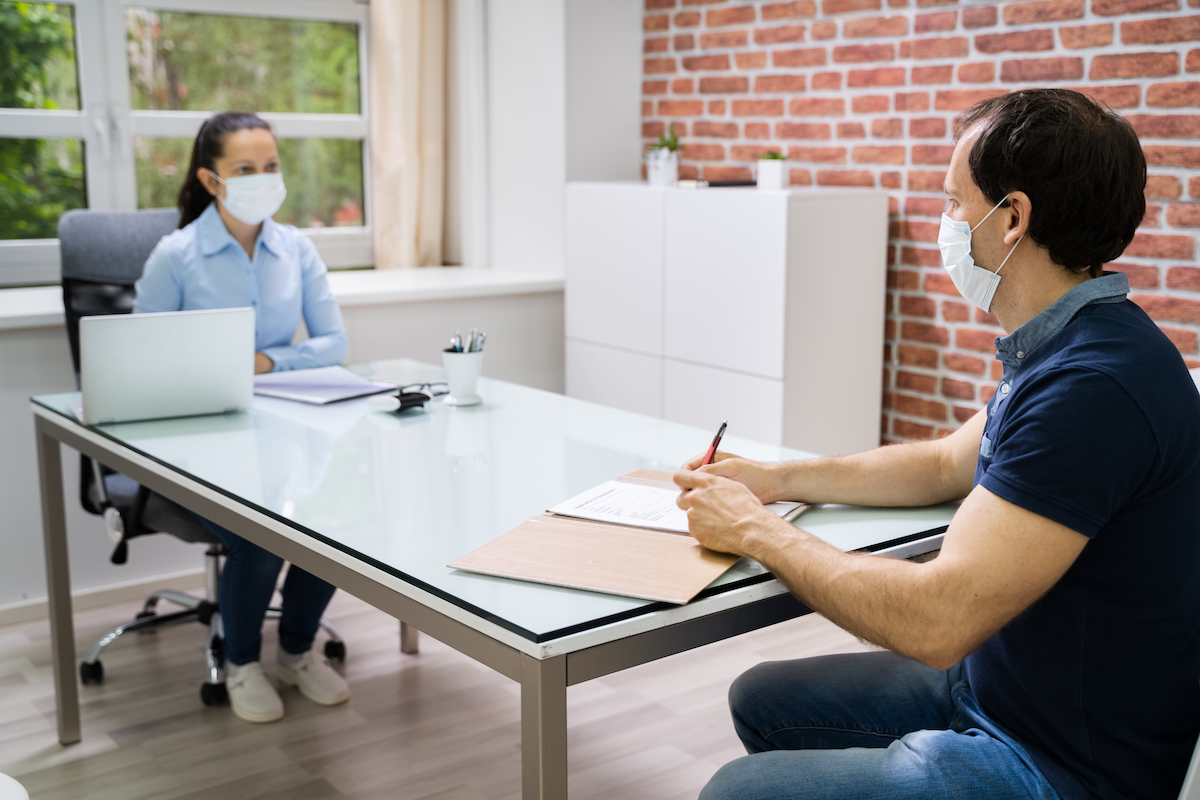
Get Paid to Share Your Expertise
Help shape the future of business through market research studies.
See Research StudiesIn today’s job landscape, landing an interview is a major accomplishment.
After the initial excitement regarding getting an interview wears off, you might be faced with some questions or personal challenges regarding actually participating in the interview.
While many companies are still conducting remote interviews, some are now requiring that you physically go into the office. This is especially true for final interviews, as a lot of companies are hesitant to make a hire, especially for a leadership position, without meeting the candidate in person.
With COVID-19 cases rising in many areas, especially those that have opened up the most, how can you ensure you maintain your safety and protect those around you?
Research the company
Many companies are posting their COVID policies on their websites, so be sure to review them before the interview so you have a good sense of their mindset. These days it seems like people are all over the spectrum regarding what precautions they are comfortable with, and while it seems like most companies tend to be more conservative, it’s important that their view is something you can be comfortable with.
You can do direct research as well, as you arrange your interview ask the recruiter what their policies are for being in the building, and what their expectations are for outsiders. Are masks required? Is the room set up for social distancing? Will there be a health screen upon arrival? Is there a preferred alternative to hand shaking you should know about?
Plan your arrival protocol
Don’t be afraid to ask the receptionist or your interviewer if you could visit the restroom before the appointment so that you can wash your hands, as hand washing is an important way to minimize the spread of disease. Consider bringing with you your own travel size hand sanitizer, tissues, and bottle of water to minimize the person-to-person contact you’ll have with people.
Know your comfort zone
Many people feel uncomfortable in a mask, and it is difficult to read someone’s facial expressions with a mask on. If you are comfortable with the distance between you and the interviewer, and especially if there is a door or window open providing fresh air, you might feel agreeable to taking your mask off if the interviewer suggests it. If not, it is perfectly OK to say you are more comfortable keeping it on.
Ask questions
A good time to broach safety protocols for employees is when the interviewer asks if you have any questions for them.
You might ask things like: What are you doing to keep employees safe? What changes to safety protocols have you made in response to COVID? What is your sick leave policy if I get sick or need to be quarantined?
What is the leave policy if a family member that I provide care for gets sick? What happens if a co-worker gets sick; will there be contract tracing done?
You might also ask some questions about what do expect for the future. For example, are they working on keeping most employees remote indefinitely, or are they expecting to call everyone back to the office? Do they know what travel might look like in the next year or so? What policies are they creating regarding meeting with clients?
Be prepared for uncomfortable answers
Be careful about saying you are immunocompromised or that someone you live with is at risk. Although employers can’t discriminate on the basis of health and medical issues, that doesn’t mean it doesn’t happen, even inadvertently.
It’s better to say something along the lines of that you want to do your part to minimize the risk of spreading the virus or that you are happy the numbers are going down and you want to do your best to help keep it that way.
Alternately, if you are in a community where numbers are rising, you might cite that fact, and say you feel more comfortable being vigilant. A good potential employer will respect your wishes. If they don’t, you’ll want to take that into consideration as well.
Using these questions to gain information about what you can expect will help you to make more informed decisions about your safety as both a job seeker and an employee.
Need more help preparing for an upcoming interview? Schedule a free consultation!

 Jennifer L. Grybowski
Jennifer L. Grybowski